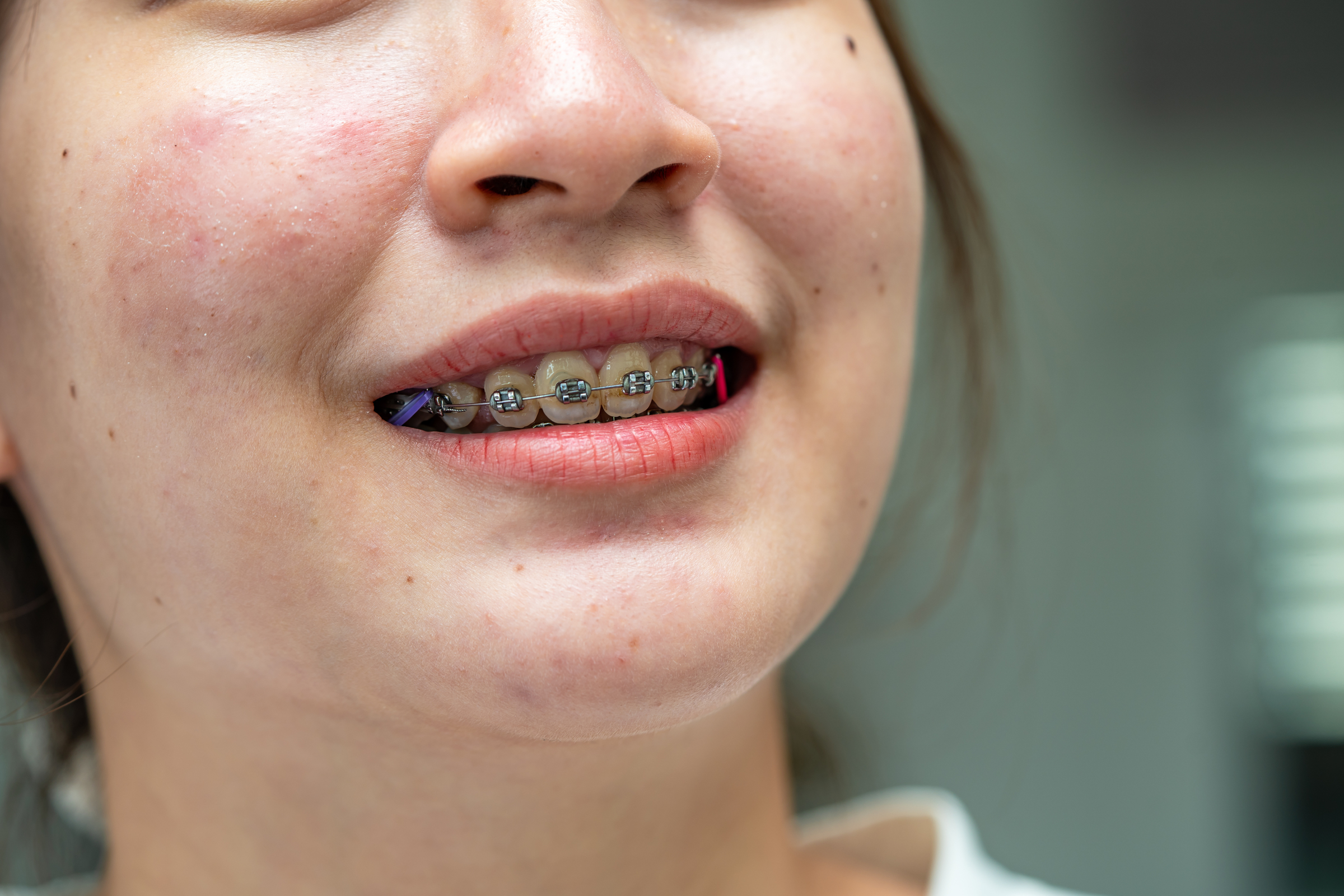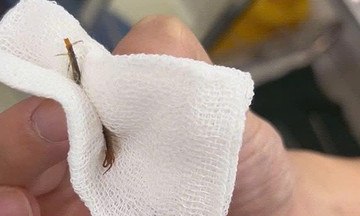Answer:
Braces, or orthodontics, are a dental treatment method that corrects the position of teeth and jawbones. Braces help teeth grow evenly, ensure proper bite alignment, and improve both chewing function and aesthetics.
Getting braces can pose health risks if not performed at a reputable clinic. The procedure involves using tools like archwires, brackets, and aligners attached to the teeth, which can cause wounds and bleeding in the mouth. Improper hygiene can make the area around the brackets susceptible to bacterial attacks, leading to swelling, inflammation, and soft tissue infections. People with braces often experience pain, swollen gums, bleeding when brushing, and persistent bad breath.
There is also a risk of tetanus due to the potential for mouth wounds. If the tools are contaminated or not properly sterilized, bacteria can enter the wounds and cause tetanus. Bacteria can also be present in the mouth and enter the bloodstream through open wounds.
 |
Braces carry the risk of oral infections and tetanus. Illustrative image: Vecteezy |
You should choose a reputable dental clinic with strict sterilization procedures for your child's treatment. At home, guide your child in maintaining thorough oral hygiene, using specialized toothbrushes, dental floss, and mouthwash regularly. Individuals with braces should monitor for any unusual signs in the throat area, such as swelling, pain, fever, or unusual bleeding, and seek immediate medical attention if necessary.
Before getting braces, you should check your child's tetanus vaccination history and ensure they receive any missing doses. This helps reduce the risk of tetanus if wounds occur.
The tetanus vaccine is 95% effective when administered in the correct dosage and schedule. For children, the tetanus vaccine is included in early childhood immunizations, completed before the age of two. Booster shots are needed at 4-6 years old, 9-15 years old, and every 10 years thereafter.
Adults who don't recall their vaccination history should receive three doses of the vaccine within 7 months, followed by a booster every 10 years. Pregnant women are recommended to receive two doses containing the tetanus component during their first pregnancy and one dose in subsequent pregnancies to protect both the mother and transmit tetanus antibodies to the newborn.
If someone has received the full course of tetanus vaccination and is still within the protection period, they only need an additional dose of the vaccine for major wounds, without the need for tetanus immune globulin (TIG) or tetanus antiserum (SAT).
Doctor Nguyen Tien Dao
Medical Manager, VNVC Vaccination System
Readers can submit vaccine-related questions for doctors to answer here.












